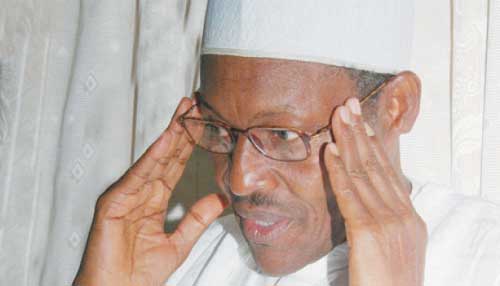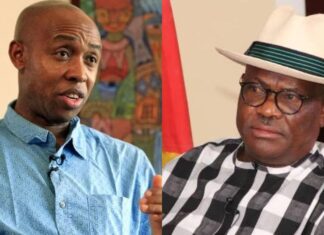The declaration by President Muhammadu Buhari, last week, that the treasury was in the red, calls for actions on how to bring the country back on track, writes Assistant Politics Editor, DANIEL KANU.
President Muhammadu Buhari, on Monday, June 22, delivered a ruthless verdict of the Nigerian condition under his predecessor, Goodluck Jonathan, raising the alarm that he inherited a country with empty treasury. To substantiate his claim, he promised to make public a comprehensive statement on the economic and financial situation inherited by his administration within the next four weeks.
Buhari’s verdict is that the nation is in for a very turbulent time ahead, because the economy had been grossly mismanaged.
The President, who released the bombshell, lamented that his administration was being weighed down by debts running into millions of dollars.
Although Buhari did not disclose how much debt he met, his message was simple: Nigeria is at a defining moment that has great implications, and something drastic must be done to redeem the situation.
Earlier leaks
Not many were actually surprised at the disclosure by the President. Ahmed Joda, the Chairman of the Transition Committee that was put in place by Buhari (then President-elect) to interface with the former administration of Jonathan for a smooth handover of power on May 29, had, in fact, given hints on the untidy situation.
Joda had disclosed then that Jonathan left behind a N7 trillion liability, a figure that contradicts claims by senior officials of the previous administration that the country’s debt profile stood at N1.3 trillion.
According to Joda, “We were told at the beginning of the exercise that the government was in deficit of at least N1.3 trillion and by the end people were talking about N7 trillion. Everything is in a state of collapse.”
The former Federal Permanent Secretary said he had always wondered what would have been the fate of the country had Jonathan and his party, the Peoples Democratic Party (PDP), returned to power.
Vice President Yemi Osinbajo had, in an earlier remark, alerted that the new government would be inheriting a debt of $63 billion. But former Minister of Finance, Ngozi Okonjo-Iweala, had then risen to the defence of Jonathan’s administration, insisting that of the $63 billion debt, the administration only incurred $21.8 billion.
She also said the $63 billion cited by Osinbajo included multilateral and domestic loans by successive federal and state governments since 1960.
According to her, the debts incurred under the Jonathan government were made up of $18 billion domestic component and $3.7 billion external component.
Okonjo-Iweala further explained that the leap in the debt profile between 2012 and 2015 was triggered by the 53 per cent wage increase implemented by the late Umaru Yar’Adua administration.
Scampering for safety
But shocked by the reality on the ground, Buhari on Tuesday in Abuja met with the state governors to critically brainstorm on the remedy for the economic danger ahead. At the meeting, he admonished them to rise up to the challenge of leadership, stressing that the days of impunity, lack of accountability and fiscal recklessness in the management of national resources were over in Nigeria.
Our reporter gathered that the president was peeved that the federal and state governments were still owing workers many months of salaries, describing the act as disgraceful.
Buhari thus vowed that funds stolen by government officials who abused their offices in the recent past would be recovered and systemic leakages plugged.
“There are financial and administrative instructions in every government parastatal and agency. But all these were thrown to the dogs in the past. Honestly, our problems are great, but we will do our best to surmount them. The next three months may be hard, but billions of dollars can be recovered, and we will do our best.
“We will try and put the system back into the right position. What happened in the Second Republic has apparently happened again, and even worse; but we will restore sanity to the system,” Buhari assured the governors.
Expressing surprise that the governors had tolerated the atrocities allegedly committed with the Excess Crude Account (ECA) since 2011, Buhari promised to tackle the issue decisively.
The president declared that the payment of national revenue into any account other than the Federation Account was an abuse of the constitution, adding that what he had heard going on in many agencies and corporations were mind-boggling.
Walking on tight rope
Buhari seems to be sensing the heat of what he might face with Nigerians on his first 100 days in office scorecard if he fails to perform to the people’s expectation.
Said Buhari, “This culture of 100 days (in office) is bringing so much pressure with the treasury virtually empty, with debts in millions of dollars, with state workers and even federal workers not being paid their salaries. This is such a disgrace for Nigeria.”
With the turn of events, critics say Buhari has deflated balloons of enthusiasm he raised when he took over office, as those who thought he was a befitting replacement for Jonathan are now being given reason to have second thoughts. Their argument is that almost one month since he took over, nothing fundamental has been done aside giving one reason or another as justification.
“I can tell you that most Nigerians that thought Buhari would bring the needed magic to rebuild Nigeria are gradually getting disappointed. I am one of them. So far so sad,” Gladys Achumba, a teacher, told TheNiche.
Debunking Buhari claim
Of course, it was not expected that Jonathan would swallow the claim of leaving an empty treasury without a response from his quarters.
A former Deputy Chairman of the National Planning Commission (NPC), Dr. Abubakar Olanrewaju Suleiman, did not mince words in his reaction.
“Buhari lied,” he said, cautioning the president against accusing Jonathan of milking the nation’s treasury dry.
Suleiman stated that the former administration under Jonathan left behind $30 billion. This, he said, was in addition to the $2 billion in the ECA as at May 29. He explained further that the amount would have been higher, if not for the governors’ insistence on sharing the fund.
He said, “Government can’t tell us that there is no Excess Crude Account (ECA), Sovereign Wealth Fund (SWF) or are we saying the Federal Inland Revenue Service (FIRS) and related agencies had not in the last one month been generating revenue?
“Until they are able to prove they had no receipts from these government agencies in the last one month before Nigerians can now buy into Mr. President’s claims of an empty treasury.”
He recalled that under the Jonathan administration, Nigeria was rated the largest economy in Africa and 26th largest in the world.
The statement explained further: “Money made by government is meant to be spent, and this the immediate past administration did responsibly. Every government, even in the so-called western world, including the United States which today remains one of the largest debtor nations in the world, government operates on deficit.
“Is it not on record that President (Barack) Obama inherited $3 trillion debt, a collapsed banking sector and mortgage industry, yet he never raised any alarm. None of these has happened in Nigeria under Jonathan.
“Upon inception of Jonathan’s administration, it is on record that the price of oil at the global stage was over $100 per barrel, and at the close of the administration, it dropped to $46. Yet there wasn’t collapse of government and federal civil servants were paid as and when due.
“It will be misleading, therefore, for our respected President Muhammadu Buhari and indeed the ruling APC (All Progressives Congress) to claim to have met an empty treasury.”
Feeling the heat at the states
Against the reality of uncertainty even at the federal level, analysts fear that the fate of states in difficult situations would remain more precarious. Most states, at the moment, are finding it difficult to execute their programmes. Part of the reason is that their predecessors had left big financial burden.
In most of the states, workers’ salaries have been owed for months. The states resorted to borrowing. The sad story was that most states that went to the bond market to borrow could not use the money judiciously for the development of the state, rather for the wrong reasons.
The profile of external debt, has not been entirely different. If anything, it has remained frightening.
Economic experts have argued that there is nothing wrong in borrowing, if the funds are judiciously used for genuine development.
For instance, Lagos State under Governor Babatunde Fashola received so much commendation given his giant strides, but Lagos has the highest debt profile of $1.087 billion. It is followed by Kaduna State with a total of $234 million. Cross River State followed closely with an external debt profile of $131.469 million. Other states going by the records with relatively large external debt are Edo $123 million, Ogun $109 million, Bauchi $87 million, Enugu $62 million, Katsina $78 million, Osun $67 million and Oyo $72 million.
Based on the rising debt profiles of state governments, the federal government last year directed banks not to grant fresh loans to state governments until they got the relevant approval and clearance from the Federal Ministry of Finance.
The Soludo forecast
In a way, the current messy situation did not come to enlightened analysts as a surprise. At the heat of the 2015 presidential campaign, former governor of the Central Bank of Nigeria (CBN), Chukwuma Soludo, had seen through the promises by the leading political parties and alerted that it would be difficult to accomplish them in the light of the state of the nation’s economy.
He had then observed that while Jonathan lacked achievements to point to, or clear future plans, his main challenger, Buhari, lacked specific plans on how to salvage Nigeria’s economy.
Soludo said none of the parties, neither the APC nor the PDP, presented Nigerians with a comprehensive cost benefit analysis of its programmes which, he insisted, were implementable.
“The UK Conservative Party’s manifesto for the last election proudly announced that all its programmes were fully cost and were therefore implementable. Neither APC nor PDP can make a similar claim. A plan without the dollar or naira value to it is nothing but a wish-list. They are not telling us how much each of their promises will cost and where they will get the money. None talks about the broken or near bankrupt public finance and the strategy to fix it,” Soludo remarked.
Critics snigger that it is the Soludo prediction that Buhari seems to be facing, as he appears overwhelmed by the office. According to them, the president appears to have been boxed to a corner due to lack of fundamental planning.
They further expressed worry that close to a month in office Buhari has not named his cabinet.
Their advice is that the president should not give any excuse, given that he was voted for, essentially because Jonathan was seen to have failed to provide the leadership that should take the nation to the next level.
“Nigerians know there was a problem which President Jonathan was unable to provide answer, the reason they voted him out.
“Buhari claimed he knew the problems and was going to solve it and fix Nigeria; so he should stop complaining and give Nigerians what they want: robust economy, stable power supply, peaceful security, employment, at least,” said Edward Badmus, legal practitioner and social critic.














